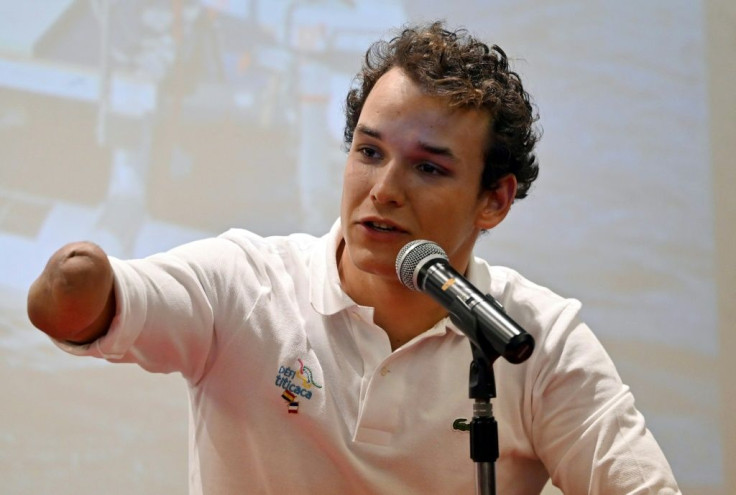French Quadruple Amputee To Swim Across World's Highest Lake
A Paralympian quadruple amputee, an Olympic silver medalist and an "eco-adventurer" will attempt to swim 122 kilometers across the highest navigable lake in the world to raise awareness of environmental pollution.
The French trio -- Theo Curin, 21, Malia Metella, 39, and Matthieu Witvoet, 27 -- were in La Paz on Friday finalizing preparations to swim across Lake Titicaca on the border of Bolivia and Peru.
"One of the reasons is that I wanted to take on a challenge that has never been done before," said Curin, a Rio 2016 Paralympian who had part of both arms and both legs amputated when he was six after contracting meningitis.
Starting on Wednesday, the trio will swim from Copacabana on the Bolivian side of Lake Titicaca, 122-kilometers across to Puno on the Peruvian side of the world's highest body of navigable freshwater, some 3,800 meters above sea level.
They have been training for 13 months at Lac de Matemale in the Pyrenees for the challenge, which they expect will take then 10 days to complete.

Besides the long distance they will have to cover and the high altitude which will make the task more difficult, the swimmers will come up against the cold: the water temperature is just 10 degrees Celsius.
They will take turns to swim an expected 12 kilometers a day while the other two will keep warm and fed in a boat traveling alongside the swimmer.
"Theo asked me (to join him) and he has incredible values," said Metella, a silver medalist in the 50-meter freestyle at the Athens Olympics in 2004.
"Swimming in freshwater, in a lake, in a river, is something that I have never done, or in an exceptional cold and I want to see what it's like."
Besides taking on a personal challenge, the adventurers want to raise awareness of pollution in the lake that is considered sacred to the indigenous Aymara and Quechua people that live on its shores.
For Witvoet, who describes himself as an eco-adventurer, "the message we want to impart is that we can change things so that this lake becomes clean again."
© Copyright AFP 2024. All rights reserved.





















